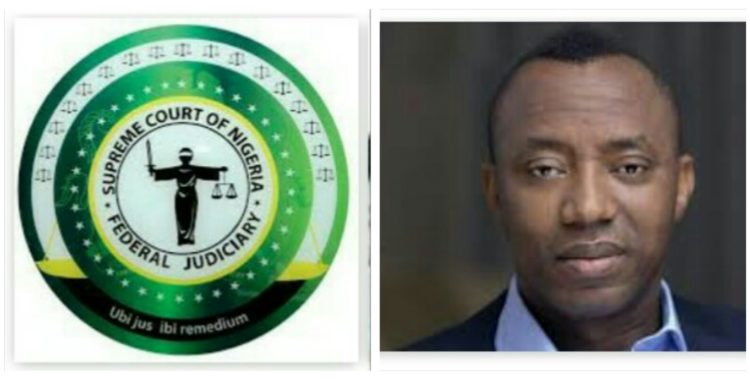The case of Sowore and the lingering question of a Nigerian revolution.
Update!
Two days after Justice Taiwo O. Taiwo of the Federal High Court, Abuja, granted an order for a 45-day pre-indictment detention of Sowore under the Nigeria’s terrorism laws, Sowore’s lawyer, Mr. Falana, filed an application to vacate the order. That set a fairly predictable direction for the case.
The application to vacate had the strategic relevance of forcing the agency that arrested Sowore, the DSS, to show its hands more fully. That is, the application alleged that there was no justifiable basis in law to detain Sowore. In a response to such application, the DSS would be forced to show that there was a basis. And this is where a sound knowledge of pure and applied jurisprudence will be needed for one to understand the game.
Being a pre-indictment proceeding, what is the DSS required to prove? What is the requisite standard of proof at this stage of the case? Unlike where an indictment has been filed, the standard of proof at this stage is for the DSS to show that there is a reasonable suspicion.
Let me take you back to earlier lessons we gave in the forum. In a standard criminal case, you will go through three different standards of establishing the merits of formal constraints imposed on a person by law.
At the initial stage , there is the standard to be met in order for a person to be arrested. That is known as reasonable suspicion. Once a police officer has a reasonable suspicion that you committed a crime, he can arrest you. Reasonable suspicion is the standard.
After you have been arrested and charged; the standard required for you to be charged and for the court to accept to try you is known as prima facie case. Once the prosecutor can show that there is a prima facie case against you, the court will proceed to trial.
And finally, for the court to find you guilty, there is the final standard known as proof beyond reasonable doubt.
So, in Sowore’s case, the suspect has not being charged. So, the standard is low – reasonable suspicion. And this is where Nigerian legal system shows it is still backward. By not having charged him, all that they are required to do is to show they have reasonable suspicion, which is a highly subjective test.
It was therefore possible for the DSS to come up with unsubstantiated allegations of Sowore collecting millions of dollars to topple the government. Those allegations are most likely untrue. But they are not required to prove it is true because we are still at the level of reasonable suspicion. All DSS needs to do now is to make any allegation they like. It is impossible for the Judge to say that a suspicion is unreasonable. So, we can conclude that the application to vacate the detention order will fail.
When the case goes all the way to the point where Sowore is charged, then they will be required to prove that there is something worth pursuing. The DSS will fail to prove the case in the end, but the damage would have been done to Sowore.
Note: Rambo is aware that a parallel proceeding was filed in Lagos and a Lagos court may have issued an order favorable to Sowore. We believe that having conflicting orders will only give the DSS the excuse not to obey any order it does not like by claiming it was confused by the orders.

